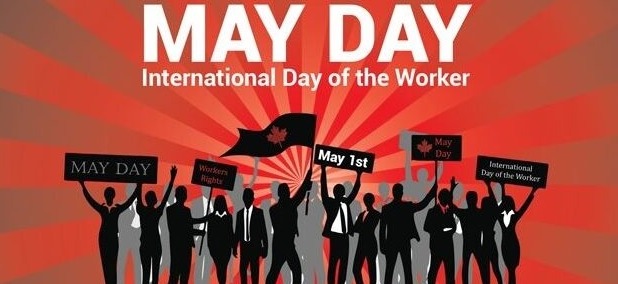By Chidi Ugwu
The Corporate Accountability and Public Participation Africa (CAPPA) has saluted Nigerian workers on the occasion of this year’s International Workers Day, while also calling on government across all levels to implement a living wage as a necessary step to prioritise workers welfare.
CAPPA, in a statement signed by Signed
Robert Egbe, its Media and Communications Officer, noted that workers are the backbone of the Nigerian economy, yet continue to suffer a variety of challenges, including exploitation, unsafe work conditions, inadequate wages, all within a shrinking civic space and bleak economic environment.
Referencing data from the National Bureau of Statistics (NBS) and other statistical bodies, the nongovernmental organisation noted that between 2024 and 2025 for instance, workers have been at the receiving end of poor government policies which have worsened inflation, eroded real incomes and made basic goods and services increasingly unaffordable.
Worse yet, an estimated 13 million more Nigerians are projected to, by the end of 2025, join the existing 129 million others living below the poverty line due to ongoing inflation, according to the World Bank.
“Ironically, it is the neo-liberal and pro-market policies imposed by the World Bank and International Monetary Fund (IMF) on Nigeria’s government through usurious loans and grants that are the main reasons behind the socio-economic crisis facing Nigeria today,” the CAPPA statement reflected.
While acknowledging the Nigerian government’s approval of a N70,000 minimum wage last year, the organisation stressed that the amount still falls short of what is needed to improve workers purchasing power amid worsening social conditions and the cost-of-living crisis.
All of these are compounded by some state governments’ failure to honour their commitment to a living wage for workers, the statement observed. According to media reports, no fewer than 20 states have yet to implement the new minimum wage for local government workers and primary school teachers.
A key issue for Nigerian workers is that even though their labour creates the wealth of the nation, they are compelled to live a life of want and misery. As a recent Oxfam report shows, the wealth of the 4 richest employers of labour in Nigeria has increased exponentially in the last two years whereas workers have seen a steep plunge in their purchasing power. For example, the new N70, 000 national minimum wage recently won by the labour movement has the same dollar-value as Nigeria’s minimum wage of N125 in the 1980s! What this means is that in actual sense, real wages have been on a standstill for at least 4 decades despite the increasing value and wealth the labour of Nigerian workers continue to create for the national economy.
Meanwhile, the statement also expressed shock that despite Nigeria’s severe unemployment and underemployment challenges, a staggering 90 per cent of expatriates are working in roles meant for Nigerians and without a work permit, according to Interior Minister, Olubunmi Ojo.
The nongovernmental organisation lamented that this situation not only continues to deprive qualified, unemployed Nigerians of the few good jobs, but also makes Nigeria a dumping ground for unqualified foreign labour.
CAPPA urged the government to seal the loopholes exploited by illegal expatriates to steal jobs reserved for Nigerians.
“This day serves as a reminder of Nigerian workers’ struggle for dignity, safety, and equity in and out of the workplace.
“Across many sectors, workers are not only demanding an adequate pay, they are also asking for the recognition of their rights to organise, the ability to voice their concerns, and safe working environments free from harassment and discrimination. ‘
“It is imperative that the government listens and act by implementing a living wage and people-centric policies that can offer workers a chance to survive,” the statement noted
CAPPA urged the government and employers of labour to take decisive actions to ensure that all workers receive fair compensation for their contributions, alongside benefits that support their well-being and development.
Furthermore, it canvassed special attention for marginalised groups, including women, youth, and informal sector workers, who often face additional barriers in the workforce.
“We urge labour unions to utilise this Workers’ Day celebration to advocate for improved working conditions and to support legislation that can alleviate the burdens of Nigerian workers,” the statement concluded.











